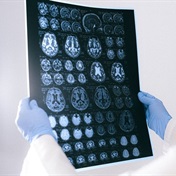- Those who have difficulty hearing in noisy environments may be at greater risk of dementia.
- Researchers found little evidence to suggest that people may have trouble hearing due to other causes.
- Dementia is not one specific disease but a group of conditions relating to brain functionality.
Do you struggle to hear people speak in a noisy environment? If your answer is yes, you may be at higher risk of developing dementia in old age.
A study conducted at the University of Oxford’s Nuffield Department of Population Health (NDPH) shows that difficulty hearing human speech is associated with up to a 91% increased risk of dementia.
More than 82 000 participants (volunteers from the UK Biobank consisting of women and men 60 years and older) took part in the research.
In the beginning, participants had to identify spoken numbers against a background of white noise. Based on this evaluation and analysis, researchers were able to group participants into categories – normal, insufficient, and poor "speech-in-noise" hearing.
A modifiable target
In a video released online, Dr Thomas Littlejohns, senior epidemiologist at NDPH and author of the paper, said they were particularly interested in identifying risk factors for dementia.
“The main finding of the study was that participants who had worse hearing had almost double the risk of developing dementia compared to those who had good hearing, and we also looked at whether this could have been driven by other factors, like whether social isolation or depression could have been underlying the association, but we found little evidence that this was the case.
“It’s important to bear in mind that with this type of study design you can’t infer causality, but this adds to the existing literature that hearing impairment could be a modifiable target to reduce the risk of developing dementia and in particular, speech-in-noise is an important component of hearing impairment that has been understudied in the past and might require particular focus when developing strategies for treatment and prevention.”
What is dementia?
Dementia isn’t a single condition but rather a collection of conditions that negatively affect cognitive functionality.
The World Health Organization (WHO) says that Alzheimer’s disease is the most common form of dementia and could contribute to 60 to 70% of cases.
Other common forms of dementia:
- Vascular dementia is a general term to describe specific problems caused by brain damage following insufficient blood flow to the brain.
- Lewy body dementia: Lewy bodies are protein masses that build up in brain cells. When they accumulate, they cause a progressive decline in nerve cells involved in thinking, memory and movement. This type of dementia is named after the German doctor Friederich Lewy, who discovered the abnormal protein deposits in 1912.
Older people are more commonly affected by the condition, but the WHO says that it should not be regarded as a normal part of ageing.
Can dementia be prevented?
Even though dementia is not a natural part of ageing, it is more common for the condition to develop as people get older.
There isn’t a perfect plan to prevent all types of dementia – scientists continue to research and investigate the various types of dementia and how they progress. Living a relatively healthy lifestyle is believed to lessen the risk. Exercise and weight management, along with a balanced diet, low or no alcohol consumption, and not smoking, all play a role.
Because dementia is related to the functionality of the brain, untreated depression and anxiety could play a large part in cognitive decline and the possible onset of certain conditions. A dementia diagnosis could also lead to depression. Either way, you should consult your primary healthcare professional for advice on your best course of action.
READ | Alzheimer's disease: Obesity may worsen its effects - new study
READ | Dementia: Is processed meat another risk factor?
READ | Being bilingual is good for your brain, especially later in life




 Publications
Publications
 Partners
Partners












